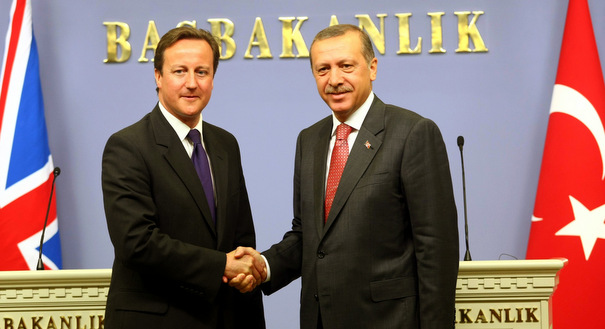The timing could not have been better.
Just days after Turkey had brought together some of the world’s top diplomats to discuss how to end the violence in Syria and support the Syrian opposition movements, the House of Commons Foreign Affairs Committee published a fascinating and revealing report about Britain’s relations with Turkey.
Fascinating, because the 121-page report gives a sympathetic and realistic assessment of what is happening in Turkey, now into its tenth year of being governed by the moderate Islamist Justice and Development Party.
It praises Turkey’s reform efforts but does not shy away from criticizing Prime Minister Recep Tayyip Erdogan for imprisoning journalists and backtracking on some aspects of judicial reform and human rights.
It also sees how Turkey’s changing role in the region is beneficial, not detrimental, to Western interests.
Unlike some commentators in Europe and the United States, members of the Foreign Affairs Committee do not believe that Turkey is drifting away from the West just because it was talking to Iran or defining its own strategic interests in this part of Europe.
If anything, as the report implies, the more Turkey can show that democracy and secularism is not incompatible with Islam, so much the better for a region only beginning to grapple with the transition from authoritarian rule to democracy.
But the most important aspect of the report is this: Britain’s unswerving support for Turkey’s membership of the European Union.
Britain is supporting such membership because in the view both of the Foreign Affairs Committee members and one that is shared by the government, Europe would only gain.
Turkey, for example, would boost Europe’s economy because it has a large market and a young population. It would enhance the EU’s influence, especially in the Middle East and North Africa. It would help to secure improved energy supply routes from Central Asia to the EU. And finally, it would “reinforce the EU’s shared values”.
The fact that Britain is trumpeting Turkey’s EU membership because it would be good for Europe reveals Britain’s completely inconsistent policy towards Europe.
On the one hand, it sees the benefits for Europe of Turkey’s membership and how Europe should help Turkey finds it way back to the accession negotiations.
But on the other hand, Britain has marginalized itself so much from Europe that it cannot expect its voice to carry weight.
That is a pity.
If Britain really wants Turkey to join the EU, surely it would be much better for Britain to be engaged inside the EU rather than campaigning for Turkey from the outside.
Turkey is sorely in need of supporters inside the EU.
The EU accession negotiations with Ankara have stalled, thanks to Cyprus. It has used every opportunity to block progress, according to EU diplomats.
Meanwhile, Chancellor Angela Merkel opposes Turkey becoming a member of the EU, preferring instead a “privileged partnership”.
Although Mrs. Merkel has never said why she wants Turkey out, rather than in, by 2025, Turkey will exceed Germany’s population. If it were a EU member, it would be the biggest member. It would have the most votes in the EU institutions, something not lost on German conservative lawmakers.
According to opinion polls, the majority of German voters also oppose Turkey’s accession because that would bring in such a large Muslim population.
President Nicolas Sarkozy, too opposes Turkish membership for cultural and religious reasons, views shared too by the Netherlands and Austria.
The Foreign Affairs Committee, however, rejects any notion that the EU is a Christian club.
"The European Union was not created as a Judeo-Christian institution but rather a union of like-minded countries,” the report states.
“Turkey’s Muslim population will clearly be an enrichment to the Union that reflect the political reality of today’s world. A reinvigoration of the accession process and building of closer ties with the Turkish people would also help the EU countries in the fight against Islamophobia.”
Yet opinion polls among Turks show that the longer the EU negotiations stall, the more Turks become disillusioned with Europe.
Maybe it is because Turkey’s more assertive foreign policy stance has given Turks a sense of self-confidence that Europe has engendered.
But as Turkey is discovering in its bid to become a major regional player, it is incredibly difficult to be a lone foreign policy player. It requires allies.
Among EU members, Britain is its most loyal ally. The problem is that Britain, to its own detriment, has lost its influence in Brussels.






.jpg)